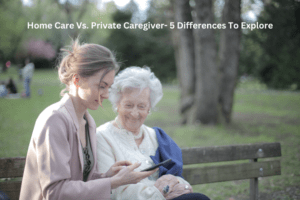Recent news and updates
Guest Blog: How You Can Find the Best Multivitamin for Senior Citizens
As we age, our bodies become more vulnerable to illnesses and nutritional deficiencies. That is why it is important for senior citizens to take a multivitamin to ensure they get the necessary vitamins and minerals to stay healthy and active. But with so many multivitamins on the market, it can be difficult to find the best one for your needs.
This comprehensive guide provides an in-depth look at the different types of multivitamins available and the factors you should consider when choosing the right one for you. Discover the best multivitamin for senior citizens and achieve optimal health and well-being.
What are the benefits of multivitamins for seniors?
As we age, our bodies become more vulnerable to nutritional deficiencies. If you do not take a multivitamin, you are putting yourself at risk of developing diseases like anemia, osteoporosis, heart disease, and cancer. Taking a multivitamin daily can help promote optimal health and wellbeing. There are various authentic online supplement stores from where you can purchase your desired multivitamins.
A multivitamin can help you meet your recommended daily intake of essential vitamins and minerals like magnesium, iron, Vitamin B, Vitamin C, and folic acid. These can be difficult to get from food alone, especially if you have certain health conditions or a restricted diet.
A multivitamin can also help you meet your recommended daily intake of certain minerals and vitamins, like Vitamin D. These are important for optimal health and wellbeing as they can affect your mood, immunity, and even your metabolism.
Different types of multivitamins for seniors
There are many different types of multivitamins available, each with its own unique benefits. Multivitamins have no harmful effect if taken properly even doctors prescribe multivimins to people going through IVF treatment as well. Below are the most common types of multivitamins for seniors. If you have a specific health concern, such as heart disease or breast cancer, you may also want to look for multivitamins with specific ingredients tailored to these conditions.
- Vitamin-only multivitamins: These are the most basic type of multivitamins, containing only the essential vitamins and minerals we need daily. They are generally inexpensive and can be purchased in bulk. They can be taken daily in combination with a B-complex.
- B-complex multivitamins: B vitamins are essential for our health and wellbeing. They can affect our metabolism, mood, and immunity. A B-complex multivitamin can help you meet your daily recommended intake of B vitamins.
- Multivitamins for seniors with heart disease: There are specific multivitamins for seniors with heart disease. They contain higher amounts of Vitamin C, E, and B-complex vitamins.
- Multivitamins for seniors with breast cancer: These multivitamins contain higher amounts of Vitamin C, E, and folate. They can also be taken by women without breast cancer.
- Multi for seniors: This type of multivitamin is made for people with a wide range of health conditions. They are often combined with other nutrients and minerals like omega-3 fatty acids, iron, calcium, and magnesium.
Important factors to consider when selecting a multivitamin for seniors
When you are looking for the best multivitamin for seniors, you should consider your age, health conditions, dietary needs, and the brand of multivitamin. Here are some important things to keep in mind when selecting the right multivitamin for seniors.
- Age: It is important to select a multivitamin that is age-appropriate. Multivitamins are generally recommended for adults over 50. While some seniors may benefit from a multivitamin, others may find it unnecessary. This can depend on your health and dietary needs.
- Health conditions: If you have certain health conditions, you may need to be extra careful when selecting a multivitamin. For example, people with heart disease or high blood pressure may benefit from a multivitamin for seniors with heart disease. If you are on medication, you may want to consult with your doctor to see if you should also be taking a multivitamin.
- Dietary needs: You should also consider your dietary needs when selecting a multivitamin. If you have certain dietary restrictions, it can be difficult to get all the vitamins and minerals you need daily. This is where a multivitamin can come in handy, as it can provide you with everything you need. – Brand: Finally, you should select the best brand of multivitamins for seniors. In order to do so, you will need to consider the factors above, as well as the price and reputation of each brand.
Tips for selecting the best multivitamin for seniors
Begin by taking note of your dietary habits. What do you usually eat? Do you take care of your diet? After you know what your dietary needs are, you will be able to select the best multivitamin for seniors. Here are some tips for selecting the best multivitamin for seniors.
- Do some research: Before you head out to buy the first multivitamin you see, take some time to do some research. Read reviews and find out what other people are saying about different brands. You can also consult your doctor for recommendations.
- Look at your dietary needs: After you know what your dietary needs are, you will be able to select the best multivitamin for seniors. You will want to look for a multivitamin that has the appropriate amounts of vitamins and minerals for your needs.
- Consider your budget: You should also consider your budget when selecting a multivitamin. Multivitamins are available at a wide range of prices. You can find quality multivitamins at every price point.
The risks of taking a multivitamin
There are several risks associated with taking a multivitamin. They can cause negative interactions with certain medications, such as blood thinners, or certain diseases. They can also cause excess iron in your body, which can lead to anemia. If you are considering taking a multivitamin, you should consult with your doctor first. Your doctor can help you select the best multivitamin and can also help you avoid the risks of taking a multivitamin.
What to look for in a multivitamin
When it comes to selecting the best multivitamin for seniors, there are several things to look for in order to ensure that you get the most out of your daily supplement. Here are some things to look for when selecting the best multivitamin for seniors.
- Amount of vitamins and minerals – You should look for a multivitamin that contains essential vitamins and minerals. This will help you meet your daily recommended intake of vitamins and minerals.
- Amount of nutrients – You should also look at the amount of nutrients each multivitamin contains. This will help you determine which multivitamin is best for you based on your dietary needs.
Popular multivitamins on the market
There are many popular multivitamins on the market. Below are some of the most popular multivitamins for seniors.
- Centrum Silver: This is one of the best multivitamins for seniors. It is rich in essential vitamins and minerals and does not contain artificial coloring or flavors.
- Nature Made Adult Multi-Vitamin and Mineral: This multivitamin for seniors is made of 100% natural ingredients. It contains 22 essential vitamins and minerals, including folic acid and calcium.
- Nature’s Bounty Senior: This is a multivitamin specifically designed for seniors. It provides essential vitamins and minerals including Vitamin C, E, and B vitamins.
The importance of speaking to a doctor before taking a multivitamin
While it is important to select the best multivitamin for seniors, it is also important to discuss your dietary needs with your doctor. After you have selected the right multivitamin and you have spoken to your doctor, you should take your multivitamin as directed on the packaging.
In order to get the most out of your multivitamin, it is important to take it daily. When you are deciding which multivitamin is best for you, you should consider your dietary needs, your age, and any health conditions you may be dealing with. You should also select the best brand of multivitamins for seniors. A quality multivitamin can help you meet your daily recommended intake of vitamins and minerals and promote optimal health and wellbeing.
Conclusion
As we age, our bodies become more vulnerable to illnesses and nutritional deficiencies. This is why it is important for senior citizens to take multivitamins





